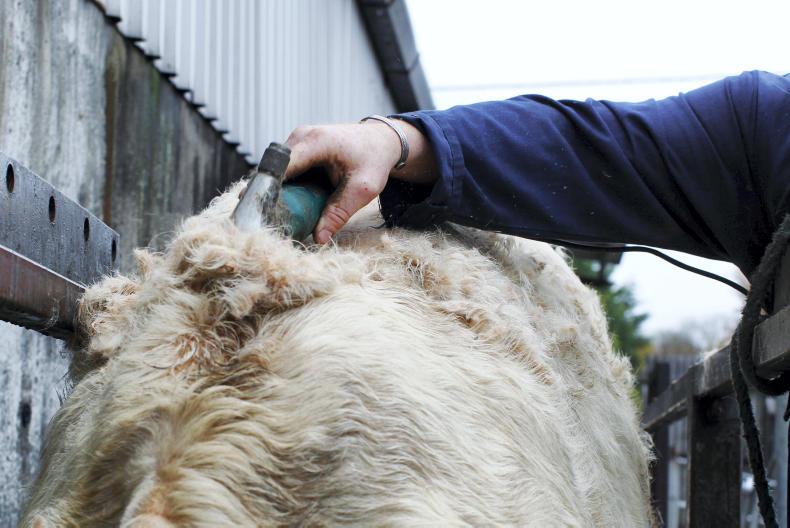Some factories have reported a large increase in the number of livers condemned, meaning that liver fluke control strategies on farm are not working in some cases.
I was in Donegal this week and Triclabendazole resistance has started to become a problem on some beef farms.
The most common signs of fluke in cattle are poor thrive, loss of condition and, in very advanced stages, bottle jaw and anaemia during the chronic phase.

Triclabendazole-based doses are the only product that can kill early immature, immature and adult liver fluke with an effectiveness of between 90% and 100%.
These have been widely used in cattle herds and sheep flocks and this is one of the reasons resistance has developed.
Remember that mature fluke are over eight weeks of age, so if you are using a product that is only active against mature fluke, animals must be housed for at least eight weeks to get high efficiency.
Liver fluke control is very important in autumn/winter-calving cows, as the presence of liver fluke parasites adds to nutritional stress and has the potential to reduce animal performance and delay resumption of cyclicity.
Read more
Beef management: rumen fluke
Beef management: lice
Some factories have reported a large increase in the number of livers condemned, meaning that liver fluke control strategies on farm are not working in some cases.
I was in Donegal this week and Triclabendazole resistance has started to become a problem on some beef farms.
The most common signs of fluke in cattle are poor thrive, loss of condition and, in very advanced stages, bottle jaw and anaemia during the chronic phase.

Triclabendazole-based doses are the only product that can kill early immature, immature and adult liver fluke with an effectiveness of between 90% and 100%.
These have been widely used in cattle herds and sheep flocks and this is one of the reasons resistance has developed.
Remember that mature fluke are over eight weeks of age, so if you are using a product that is only active against mature fluke, animals must be housed for at least eight weeks to get high efficiency.
Liver fluke control is very important in autumn/winter-calving cows, as the presence of liver fluke parasites adds to nutritional stress and has the potential to reduce animal performance and delay resumption of cyclicity.
Read more
Beef management: rumen fluke
Beef management: lice







 This is a subscriber-only article
This is a subscriber-only article










SHARING OPTIONS: